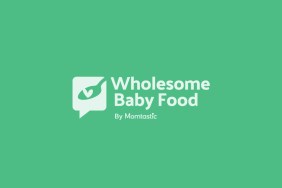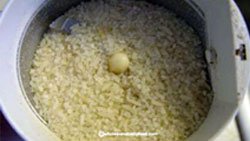Goat’s Milk and Your Baby – Is Goat’s Milk Good for Lactose Intolerant Babies?
Parents of lactose intolerant infants, or infants with a cow’s milk protein allergy, often wonder if their babies might benefit from goat’s milk.
goat’s milk is not lactose free; it actually contains lactose and not all babies will benefit from goat milk based foods.
Goat’s Milk is not lactose free or milk protein free and may not help babies with lactose intolerance
As mentioned, goat’s milk is NOT lactose free but it does contain less lactose than cow’s milk. The lactose level in goat’s milk is only slightly lower than the lactose found in cow’s milk. The main benefit of using goat’s milk for babies who may have a cow milk allergy or lactose intolerance, is the make up of the goat’s milk proteins and fats.
The big advantage of goat’s milk is that it is said to contain less “allergenic” proteins. The proteins in goats milk form smaller “curds” as the stomach acids bind to the proteins and then begin digestion. This makes the proteins found in goat’s milk more easily digested in baby’s tummy. For an infant who might have a cow’s milk allergy to cow’s milk proteins, goat’s milk may also settle better in baby’s tummy.
Goat’s milk also has a different fat makeup when compared to cow’s milk. A baby with a cow milk allergy or even reflux might benefit from goat’s milk due to its fats.
Should you switch your baby to a goat’s milk based infant formula or give your baby goat’s milk yogurt?
Goat Milk Yogurt or Cheese
Goat’s milk yogurt and cheese may be wonderful for your 8 month or older baby who may be venturing into dairy products. Of course, you must consult with your baby’s pediatrician and/or allergist prior to offering your little one goat’s milk products. Many parents tell us their babies love goat’s milk yogurt, whether they are intolerant/allergic or not.
Goat Milk Formula
Currently there are no goat’s milk based commercial formulas available in the U.S. Goat’s milk based infant formulas were available in the U.K. and throughout the European Union however, these infant formulas are being taken off the market. Department of Health – U.K. Policy changes based on E.U. statements indicate that goat’s milk formula is not suitable for infants. “EFSA also concluded that there was no convincing data, either in the literature or submitted, to support the belief that the incidence of allergic reactions is lower when feeding goats’ milk based formula compared to cows’ milk based formula. EFSA published its opinion on 12 January 2006, confirming its previous view.” EFSA -E.U.- Policy Statement re. Goat’s Milk Protein for Infant Formula
Why goat’s milk may not be a good substitute for cow milk protein based infant formula or other cow based dairy.
Here are a few reasons why goat’s milk formula is not a good substitute for regular infant formula or for soy based infant formula.
Goat’s milk is not indicated for use in infancy. Here is some rationale:
1) Goat’s milk is deficient in folic acid and vitamin B6.
2) Goat’s milk is higher in protein than human milk (1.0 gm pro/100 ml) and infant formula (1.4 gm/100 ml). It actually has 3.6 gm pro/100 ml, which puts an infant at risk for dehydration and a higher renal solute load.
3) The reason many of the “recipes” for goat’s milk for infants call for dilution (usually the recommendations are to dilute it to 2/3 strength, but in this case, it appears to be for half strength) is to decrease the renal (kidney) solute load. When it is diluted, however, nutrients including energy, are diluted. With this comes the risk of hyponatremia or water intoxication, which can result in seizures. Dilution of goat’s milk to half-strength supplies about 10 calories per ounce.
This means to meet the energy needs (98 kcal x 8.25 kg, which is the 50th percentile for a 7 month old boy), 80 ounces per day of goat’s milk would be required.
4) Goat’s Milk Acidosis has been reported in the literature most likely secondary to the high protein level.
5) It may be appropriate to try a formula that has no intact protein, milk, casein or soy and gradually introduce individual foods rather than rely on goat’s milk which is not recommended for infants.”
Maybe you know an infant who thrived and grew well on a goat’s milk based infant formula recipe and we know that many infants have thrived. However, it is also true that as science evolves, we know that goat’s milk is not the optimal nutrition solution for infants between the ages of 0-12 months old.
Editor’s Note: A visitor emailed to ask “What company is backing this website” due to the lack of endorsing homemade goat’s milk formula. This website is not backed by any commercial entity whatsoever. No funding is received from, nor are there any advertisements accepted for any corporate infant formula maker or baby food maker.
It would be irresponsible of this site to make recommendations and offer recipes for goat’s milk formula. During baby’s first year, infant formula is a non-breastfeeding baby’s main source of nutrition and may also be a complementary source of nutrition to a breast fed baby. We will never post or advocate any recipe that may endanger the health of an infant.
If you wish to make goat’s milk formula for your infant, you should be well aware of all the nutritional implications and also consult with your pediatrician and a pediatric nutritionist. You must be absolutely certain that the goat’s milk formula that you make will not endanger the health and growth of your baby.
Resources and Learning More About Goat’s Milk and Babies
- Dr. Sears on Goat’s Milk
- Milk & Gruel
- Can I Use Goat’s Milk instead of Formula? KeepKidsHealthy.org
- USDA- Infant Formula
- UC Davis- Dairy Goat Milk Composition
- AAP- Fresh Goat’s Milk for Infants: Myths and Realities—A Review
![]() This site complies with the HONcode standard for trustworthy health information:
This site complies with the HONcode standard for trustworthy health information:




